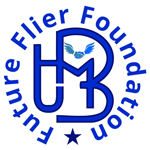The goal of Future Flier Foundation is to eliminate the feeling of hopelessness, loneliness, and increase sociability in the elderly people in the society. Old Real Gold focuses on the mental health and well-being of the elderly. Through yoga sessions, experience sharing, and poetry programs, this project seeks to provide holistic support for the mental health needs of our senior community members, recognizing the wisdom and value they bring to our society.
The old population is huge, many physical, psychological, and social role changes confront these people, putting their sense of self and ability to live happily at risk. Many elderly individuals feel alienated and despairing, either as a direct result of living alone or as a result of a loss of tight family ties and weakened contacts with their original cultures, which makes active participation in communal activities impossible. People lose contact with their peer ties as they age, making it more difficult to make meaningful connections and join new networks.
The single-person household arrangement in the context of old people is a complex and multifaceted social phenomenon considering the intersubjective aspects present in individual experiences throughout life. It was observed that living alone for the study participants directly reflects the adaptations and challenges faced in the aging process, whether in making individual choices, combining family relationships, the daily experiences of sociability and interpersonal interaction, or even the intersubjective production of self-care. The physiological effects of aging differ widely among individuals. However, chronic ailments, especially aches and pains, are more prevalent than acute ailments, requiring older people to spend more time and money on medical problems than younger people.

